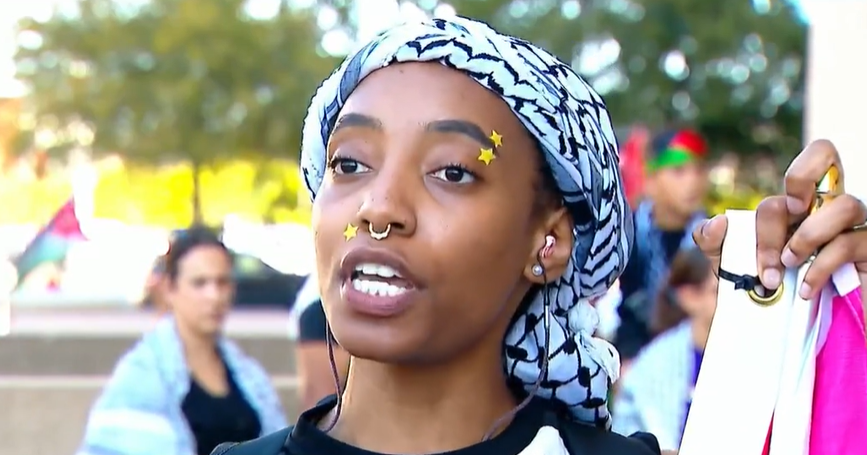
The event carried a big name because the stakes scale even larger. The Save Gaza Mega March parked in front of Dallas City Hall for more than an hour Saturday afternoon.
Speeches and chants felt familiar as organizers stayed on message, echoing protests and marches that have emerged across North Texas.
“Today marks almost two years of this genocide being perpetrated by the people of Gaza,” Mohammed Ayachi said. “And it’s all funded by our tax dollars. We’ve been out here day in and day out since this all began.”
Ceasefire talks spark cautious hope
The pro-Palestinian demonstrator, born and raised in Texas, said news of a ceasefire deal is good, but uncertain, especially as the war approaches two years on Oct. 7.
“There’s been a lot of ceasefire deals that were put on the table. And the resistance has done a lot to try to make it happen,” he said. “But what ends up happening is there’s an unreasonable clause added every time that makes it impossible for them to push forward.”
President Donald Trump outlined a peace deal for Israel and Hamas, described as a road map for brokering a ceasefire. The recommendation includes Hamas releasing all Israeli hostages within a 72-hour period. In the meantime, Israel was urged to begin making a military withdrawal from the Gaza Strip.
Jewish hostage survivor speaks out
“War is really hideous. It’s horrible, and it’s something that should be avoided at all costs.
That being said, Israel didn’t start this war,” Jeffrey Cohen said. “It started about 100 years ago in 1929, with the attack on Jewish settlers, and weren’t even settlers. There were people who had been there for 800 years.”
Cohen is one of four Jewish men held hostage by British national Malik Akram in January 2022. Investigators said Akram entered the Colleyville synagogue appearing homeless. He held the men for nearly 11 hours while attempting to negotiate the release of a female terrorist in a Fort Worth prison.
Cohen and the men survived. The suspect was killed by police. While Cohen supports freedom of expression, he said he is not an advocate for Hamas and believes some protests cross a line.
Concerns over antisemitism at protests
“I think it is even more important to discuss in many of these protests, they start as anti-Israel,” he said. “But when you turn that criticism, when you turn those attacks to Jews in general, or some subset of Jews, that’s not okay. That is not acceptable. That is racism.”
Cohen said he is cautiously optimistic about the ceasefire proposal. He noted there were no Jews in Gaza until Oct. 7, as Israel pulled out in 2005. Still, as a former hostage, he wants to see Israeli hostages released.
“I wear a yellow bracelet. It used to say, bring them home. I put this on, jeez, almost two years ago. It was a gift from the father of one of the hostages to my good friend and the director of our movie. He gave it to me,” he said. “I wear my diskette, and I can’t wait to take this off and get rid of it. Because we want that deal to happen.”
Code Pink calls for diplomacy
Leslie Harris of Code Pink said the conflict must end. She described Code Pink as an anti-war organization focused on ending militarism and redirecting resources to human needs like jobs, health care and climate action.
“You have to have diplomacy eventually to end things, and killing more people is not going to solve the problem,” Harris said.
First-time marcher voices skepticism
Bre’Unna Sneed attended her first march and said she felt compelled to come. She does not believe the ceasefire proposal will lead to real change.
“I don’t buy it. I’ll believe it when I see it,” she said. “When the bombs stop, when there is an actual treaty, when it is televised, when it is brought to the masses, I’ll believe it.”